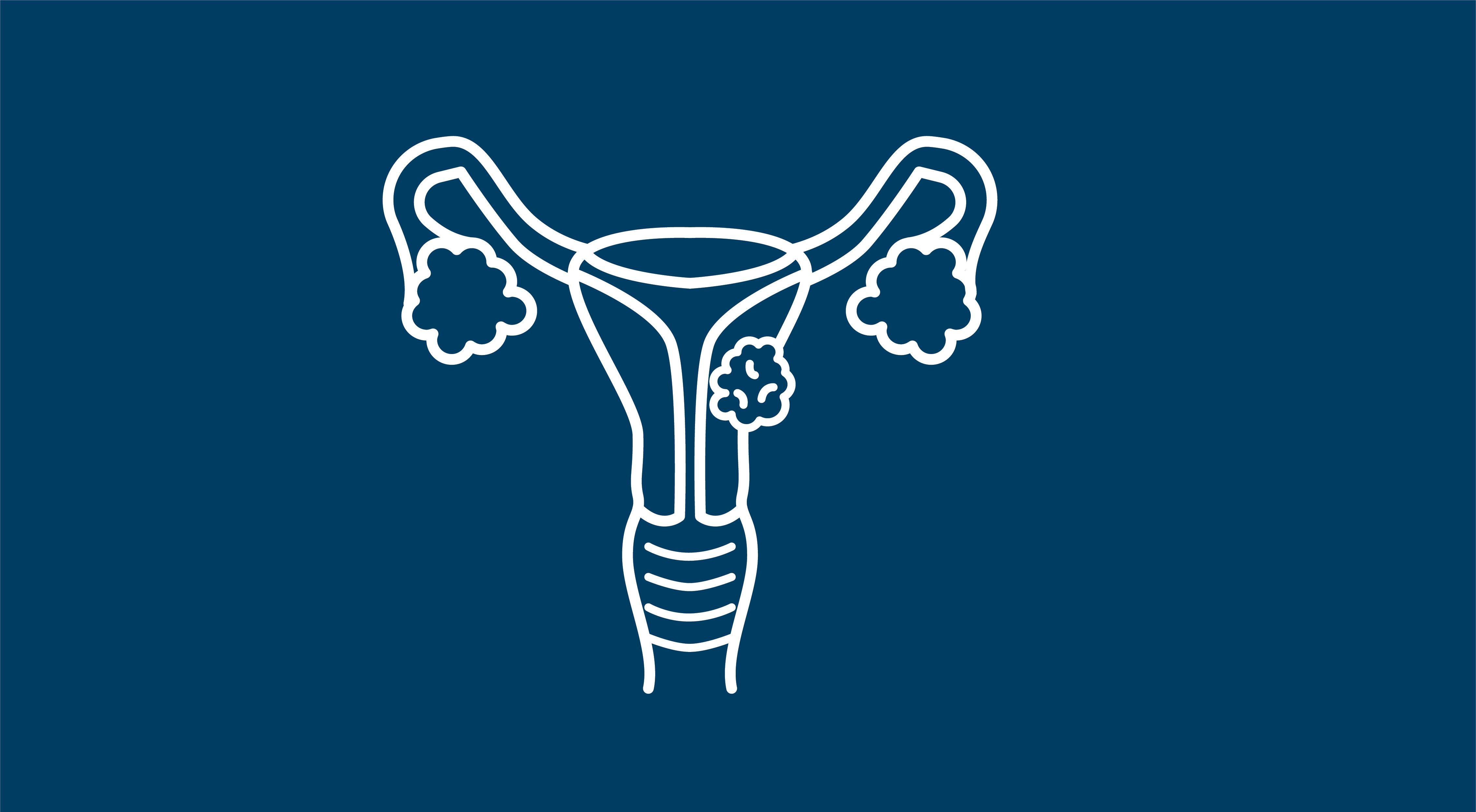Vaginal Dilation and Sexual Activity Linked to Lower Sexual Dysfunction Following Cervical Cancer Treatment
Cervical cancer survivors who regularly engage in sex or use vaginal dilators report lower levels of vaginal shortening.
Vaginal Dilation and Sexual Activity Linked to Lower Sexual Dysfunction Following Cervical Cancer Treatment

Patients with cervical cancer who engage in regular vaginal dilation or sexual activity may have a lowered risk of moderate vaginal shortening following chemoradiation, according to data from a subcohort of the EMBRACE trial. These findings, which were presented at the 2023 American Society for Therapeutic Radiology and Oncology (ASTRO) Annual Meeting, support the clinical recommendations for survivors following radiotherapy.1,2
Among patients (n = 882) who shared that they were engaging in sexual activity or vaginal dilation (64% of patients), during at least half of their follow-up appointments, 23% reported grade 2 or higher moderate vaginal shortening after 5 years of treatment. The rate of moderate vaginal stenosis was 37% among those who were not partaking in these interventions (P < .001).
The lowest rate of grade 2 or worse vaginal stenosis (18%) was reported among patients who engaged in both dilation and intercourse. The second lowest rate (23%) was reported by those who were having sex but not using dilators and were followed by those who used dilators but were not having intercourse (28%). Patients who were not engaging in either were most likely to experience moderate stenosis (37%).
Cervical Cancer Treatment
As the study authors explained, for patients with locally advanced cervical cancer whose tumor cannot be removed by surgery, the standard-of-care treatment approach includes external beam radiotherapy, chemotherapy, and internal brachytherapy.
Certain innovations in brachytherapy, such as the use of magnetic resonance imaging to specify tumor size and location, and more precise doses of radiation, have led to excellent disease control and remission rates in this patient population—patients with locally advanced cervical cancer have a 5-year survival rate of 74%.
However, patients who receive high doses of radiation are at an increased risk of vaginal stenosis—or vaginal shortening. Patients who develop this scar tissue may experience long-term changes and loss of elasticity because of the damage. Often, this leads to pain during intercourse. Clinicians regularly recommend that their patients try dilators to mitigate this risk, but few studies have assessed the effectiveness of this approach.
EMBRACE Study Methodology
The EMBRACE study is a multi-institutional, prospective, observational study which assessed data from 1416 patients with cervical cancer between 2008 and 2015, using both physician-reported and patient-reported outcomes to inform the findings. The median follow-up was 5 years.
The reports on vaginal dilation and sexual activity are part of a sub-cohort of 882 patients, in which investigators compared the adverse event profiles of those who did and did not regularly engage in these activities in the years following treatment.
As part of this study, patients who had completed treatment were to come in for regular gynecological exams to assess vaginal adverse events, during which time they were asked to complete questionnaires which queried about quality of life, sexual activity, and vaginal dilator usage.Patients were asked to complete these questionnaires at baseline, every 3 months in their first-year posttreatment, and every 6 months in the second and third years, and annually thereafter.
The median patient age was 49 years old, and patients came in for a median of 11 follow-up visits.
The Caveat
Of note, patients who engage in vaginal dilation and sexual activity may be at higher risk for mild vaginal dryness and bleeding. In the study, 72% of patients of patients who were engaging in sexual intercourse had grade 1 or worse vaginal dryness, vs 67% of patients who were not engaging in these activities (P = .0028). The rate of grade 1 or worse vaginal bleeding between these 2 groups was 61% vs 34% (P < .001).
However, dryness and bleeding can be managed with lubricants, moisturizers, and hormonal replacement therapy, whereas moderate vaginal shortening or narrowing is irreversible.
“Minor vaginal dryness and bleeding can be managed with lubricants, moisturizer and/or hormone replacement therapy,” Kirchheiner, MSc, PhD, a clinical psychologist in the department of radiation oncology at the Medical University of Vienna, said in a press release. “The risk of having these minor side effects should not stop patients from dilating or having sexual intercourse, as these activities may help prevent a more serious, and irreversible, condition.”
Furthermore, because this is an observational study, the findings can only point to correlations. The degree to which these interventions can prevent vaginal shortening is undetermined, and it is possible that the development of vaginal atrophy is the key decider in whether patients are able to engage in these activities.
“In clinical reality, both causal pathways likely will contribute and interact in a vicious circle. However, as we cannot and should not randomize patients in a clinical trial into groups with and without regular dilation, our findings support both clinical experience and the standard of care.”
Further research efforts should focus on the role of sexual arousal, and improving tissue healing and vaginal health, she added.
“With a growing number of relatively young cervical cancer survivors, the prevention and management of side effects becomes increasingly important to ensure a better quality of life,” Kirchheiner concluded. “I hope this research helps to reduce the taboo around sexual health and makes it easier for clinicians to discuss these issues with their patients.”
References
- Kirchheiner K, Zaharie AT, Smet S, et al. Association between regular vaginal dilation and/or vaginal sexual activity and long-term vaginal morbidity in cervical cancer survivors. Presented at: 2023 American Society for Radiation Oncology Annual Meeting (ASTRO); September 30 to October 4, 2023; San Diego, CA. Abstract 4.
- Sexual activity and vaginal dilation associated with fewer side effects after cervical cancer treatment. News release. ASTRO. October 1, 2023. Accessed October 5, 2023. https://www.astro.org/News-and-Publications/News-and-Media-Center/News-Releases/2023/Sexual-activity-and-vaginal-dilation-associated-wi



